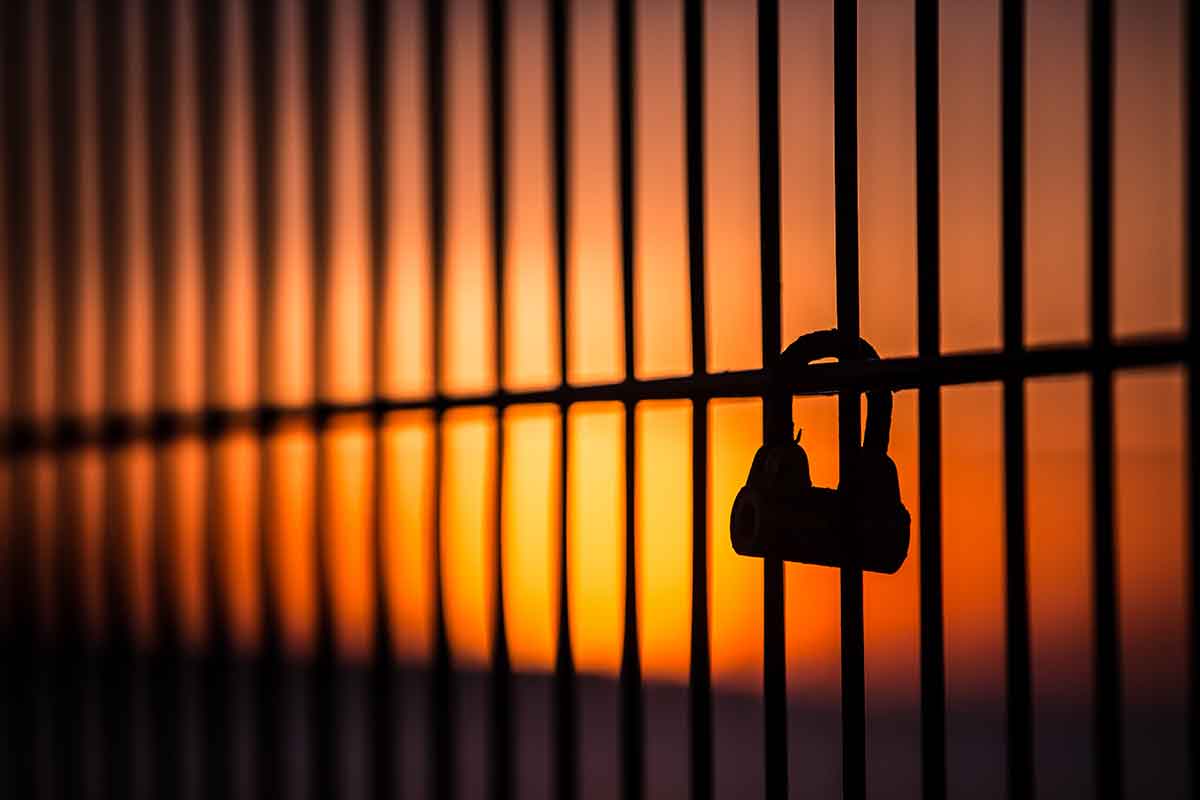Why We Find Christ in Jail
‘Prison is a place where one discovers how good people are and how bad people can be’
Prisoners aren’t that different from the rest of us, Sefatsa Qopane writes from the experience of his own ministry.
Successive popes have reminded the faithful of their duties towards the imprisoned and their families. This means that all Christians are challenged to consider ministering to prison inmates, as a call that needs their urgent response, here and now. Indeed, in his theme for the Holy Year 1975, Pope Paul VI made explicit reference to concern and care for prisoners — prisoners of conscience, but also prisoners sentenced for crimes.
There is so much more to be said about prisoners than the fact that they have fallen foul of the law. There are many positive things that we can imagine about prison inmates other than the ever-present negative stereotypes we have at our fingertips. Goodness, too, can shine through, and when it does so in jail, it is even more welcome because of its improbable setting.
From my own experience, I can speak of the prisoners’ patience, tolerance, and their unexpected honesty, to mention but a few qualities. Because of the constraints of their environment, the goodness of prisoners often expresses itself in small ways, which might easily go unnoticed. But these “little” acts of kindness are not so little after all.
Many people think of prisoners as a bunch of ruffians who get what they deserve, but the truth is that they are, in fact, a very mixed bag. Whatever they are, however, it is absolutely contrary to the Christian ethos and its fundamental tenets to ostracise them. The Gospel helps us to recognise that we are not simply our brothers’ keepers but also that “whatever we do, or fail to do, for the least of the brothers and sisters, we have done unto Him” (Matthew 25:45).
Those who are acquainted with “virtue ethics” are unlikely to challenge an assertion that “loving means to love that which is unlovable, or it is no virtue at all; forgiving means to pardon the unpardonable, or it is no virtue at all; faith means believing the unbelievable, or it is no virtue at all; and hope means hoping when things are hopeless, or it is no virtue at all”. This, I believe, is what the Christian calling entails. Many people who have had the opportunity of working with prisoners readily admit that they have gained at least as much as they have given.
The inmate is a human person
It has to be a constant reminder to us that, before anything else, prisoners are also human beings — people like you and me. People with hopes and fears, ambitions and longings, fed with the same food, hurt with the same weapons, healed by the same means, warmed and cooled by the same winter and summer as the rest of the human race. People who are not wholly good but not wholly bad either — just like the rest of us. I have found prison to be truly a place where one discovers how good people are and how bad people can be. The badness is the same badness — violence, ingratitude, hypocrisy, and so on — we might find on every side in the world outside, and even within ourselves.
There is a general apathy and indifference which Christians display towards prisoners. A significant number of congregants simply do not want to know; they would rather not get too involved. It is as though they are echoing Cain’s proverbial question: “Am I my brother’s keeper?” (Genesis 4:9). And perhaps many Christians think the same — but the question has an answer. Yes, we are our brothers’ keeper. And that poses a question: What have we done with our brothers and sisters? And inversely, it raises a question about ourselves: What sort of human beings are we?
In the synoptic Gospels, Christ identifies himself with prisoners. Christians should not be surprised to find that when they enter a prison, their Master is already there: “I was in prison and you visited me” (Matthew 25:36). Jesus doesn’t specify whether the prisoners have to be innocent or guilty. Certainly, a great number of inmates seem to come straight from the scriptures — the lonely, the unloved, the addicted, and so on.
It is impressive to read Ezekiel’s account of his pastoral ministry to the prisoners in Babylon: “I came to them of the captivity…and sat where they sat” (3:15). I suppose every man and woman of goodwill should be called to set a time aside and try to reach out to offenders — to sit where they sit, both physically and psychologically, and to try seeing things through their eyes, to listen to them, and to offer them the hand of friendship. Christians are invited to identify with their brothers and sisters in prison according to the author of the letter to the Hebrews, when he urges his readers: “Keep in mind those who are in prison as though you were in prison with them” (13:3).
Ministering to inmates requires sincerity. Prisoners tend to be suspicious of people they do not know. To make matters worse, many of them have had unhappy experiences with authority figures. They hate hypocrisy and quickly sniff it out. They want to know if you really care about them. And if so, how do you show it? In a sense, you have to prove yourself.
How should we see offenders?
How should we perceive offenders? A Christian view should not be like all others — it should be distinct. This assertion is articulated by an elegant maxim by the Romanian writer Virgil Georghiu (1916-92):
“The police seek in every human being a murderer; the wise man and the philosopher seek in every murderer a human being. We Christians seek God in every person…even in murderers. And each of us will find what he seeks: the police will find their murderer; the philosophers will find their human beings; and we, we shall find God in every person.”
I suppose visiting the incarcerated can be the sort of thing that makes a Christian vocation to serve worthwhile. Indeed, it’s a call that demands dedication from each and every one of us — and a task to which Our Lord calls any of us.
Sefatsa Qopane has served as the facilitator of the Alpha course programme at the Department of Correctional Services. He writes in his personal capacity. To find out how to get involved in prison ministry, contact your local diocese.
This article was published in the July 2022 issue of The Southern Cross magazine
- Be Persistent in Prayer: 29th Sunday in Ordinary Time - October 17, 2025
- St Luke Prayer - October 15, 2025
- The Concept and Tasks of Papal Diplomacy - October 14, 2025






